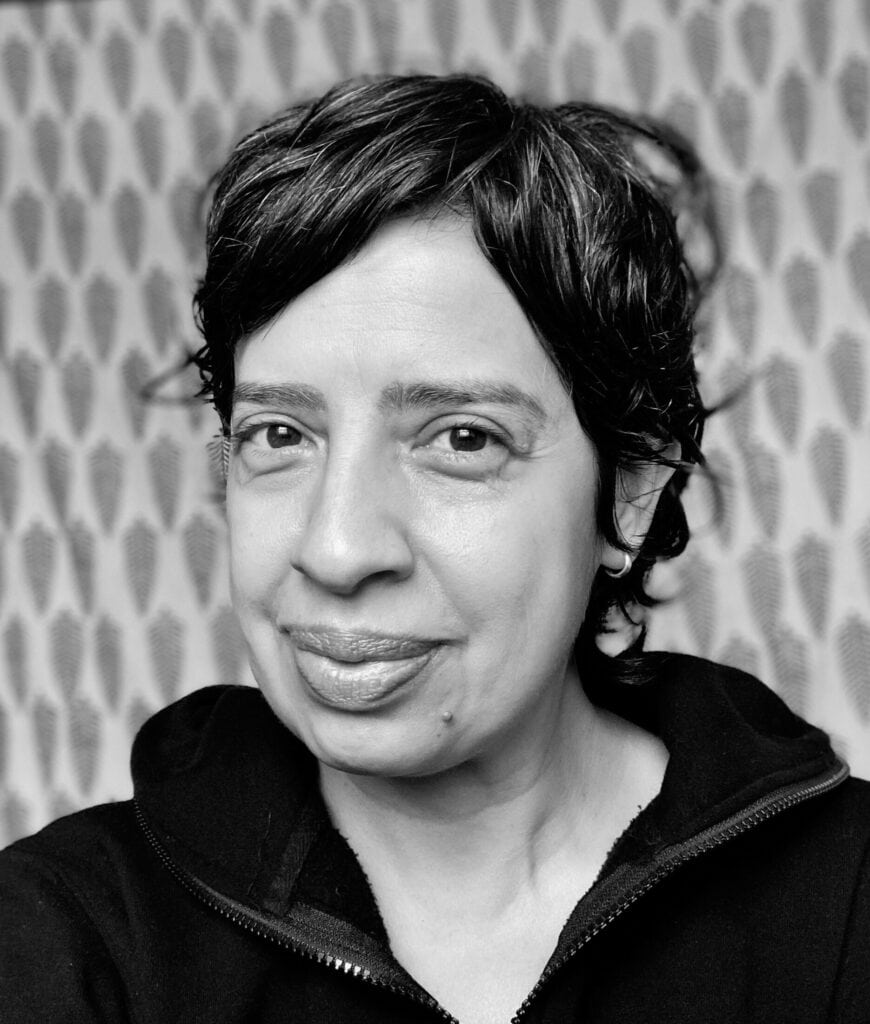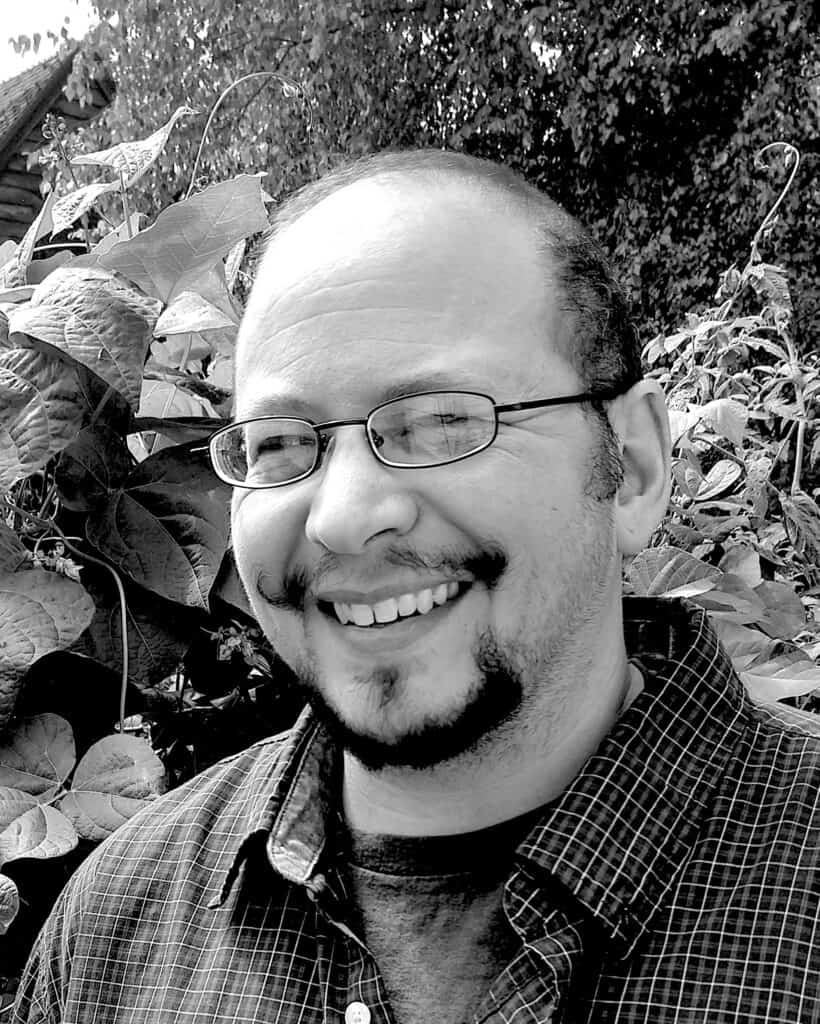In CO+nversation: WO+rd, writers, and pushing creative boundaries
Every O+ Festival brings together a genre-defying blend of artists, musicians, creatives, and wellness practitioners. Throughout the three-day festival, you might see a punk band, catch a modern dance performance, sit for a gong bath on your way to a hip-hop set, see public art created by legendary street artists as well as elementary school students, or participate in a group meditation led by a world-renowned poet (or all of the above).
In that vein, our beloved Literary Salon – now called WO+rd – continues to test and expand the boundaries of the written and spoken word. Each year, facilitators Carolita Johnson and Cris Livecchi aim to create an eclectic gathering of established and emerging voices, playing with form and structure to deliver an intimate, one-of-a-kind experience.

Both Carolita and Cris got involved with O+ early in the festival’s history. Johnson, a writer, illustrator, and cartoonist for The New Yorker, first got connected with O+ when she moved to Kingston in 2015 and applied to be part of the festival. Livecchi, the creator of the serial Radio Wiltwyck and a co-owner of World’s End Comics in Uptown Kingston, first participated in the Literary SalO+n in 2014 and then returned the next year to emcee the event.
Back then, Cris says that the Literary SalO+n operated almost like an open mic, with a few writers specifically invited to come up and perform at the former Outdated Cafe. “It was sort of like the Wild West,” Cris remembers. “That was really fun.”
Carolita adds that after her first O+ experience, she was hooked. “It was so amazing that of course, I wanted to be part of it every year, even if I didn’t formally apply to the festival,” she says. “So even if I’m not officially in [the festival], I’m in it.”
At the writer’s showcase, you can never quite know what to expect (and that’s how Cris and Carolita like it.) You might stumble in during a session with a “rock n’ roll therapist,” who writes and performs on-the-spot ditties to respond to audience members’ relationship woes. Or hear spoken word backed by a live band. Or get a personalized haiku, typed up for you on the spot. Carolita recalls a festival favorite in 2017 when then-Dutchess County Poet Laureate Bettina “Poet Gold” Wilkerson performed, saying how she stood out as both a fabulous writer but also someone who showed up to support her fellow performers. For Cris, one of the most memorable readings happened during the 2021 festival, when most events were held outdoors due to Covid restrictions.

“We did the Literary SalO+n outside in the Old Dutch Church cemetery and we had a fantastic slate of writers, all of whom were just incredible,” he says. “But doing it in the cemetery, in the open air, just really stands out for me…after all these years, I still feel really lucky to be surrounded by people who are way more talented than me.”
As both Cris and Carolita got more involved in running the event, they started to reimagine how the Literary SalO+on might evolve. Where formerly, writers were invited to perform, Cris and Carolita shifted to the submission process that other festival alumni follow to cast a wider net and attract more writers from different backgrounds, as well as people working in different mediums.
“In the beginning, it was hard to find a lot of folks who weren’t all the same people over and over again,” Carolita says. “We’ve really been making an effort to reach out to a lot of people and hear a lot of voices, and a range of forms as well.”
The latter part can be tricky when you’re curating a literary salon – the terminology itself can feel overly formal and exclusive, neither of which is an accurate representation of the ethos of the event. It was partially for this reason that the Literary SalO+n was rebranded as WO+rd in 2023.
Last year also marked a bit of an inflection point for the beloved writer’s showcase: in addition to officially rebranding and renaming the event to reflect a more expansive interpretation of the medium, for the first time, the format included more multimedia elements and several spotlight events, including readings by local legend Richard Buckner and renowned poet Mahogany L. Browne.
“I think [2023] is the first year we came into ourselves,” Carolita says.
When looking at submissions, Carolita says they’re open to a variety of interpretations on the festival theme, so long as they’re word-based and creative. “To me, ‘literary’ sounds highfalutin, but maybe ‘writerly’ is a better way to say it,” she says. “There are so many ways of being writerly that I like seeing how people find different ways to do it. So that’s I think what we seek a lot of.”
For writers interested in submitting to WO+rd, both Carolita and Cris offer a few key pieces of advice: fill out the form completely, be as detailed as possible, and think about the festival theme in your application.
Still writing/revising/editing the piece you want to perform? No worries! You don’t need a finished piece to submit, but it’s helpful to be able to describe the piece and any other elements of your planned performance.
“It’s useful to be very specific when you’re submitting. Even if you haven’t started writing the thing you’re going to perform yet, we can still gauge the quality of your work from your writing sample,” Cris says. “But if we don’t have a good idea of what you’re going to perform, then we don’t know how it fits into the [festival] theme…Someone can be a great writer, but if the work that they’re proposing doesn’t have anything to do with the theme of that year then we’re a lot less likely to move them forward.”
At the same time, they encourage people to get creative and think beyond the boundaries of a traditional spoken word format.
“I often do stuff for O+ that’s different from what I do professionally because I see the festival as an opportunity to be more experimental,” Carolita says.
“We can’t emphasize enough how much variety we have in terms of genre and style and subject matter,” Cris adds. “That’s something we’ve tried to do as a committee so that we don’t have the same type of writer or reader show up again and again.”
Over the years, WO+rd has hosted many amazing established writers and authors from the Hudson Valley and beyond and has become a space to highlight emerging creatives.
“There aren’t that many spaces for unpublished writers. I like that idea of giving access to people.”
“Another thing we’re trying to juggle is the balance of published writers with more up-and-coming, newer writers who are really talented,” Cris says. “We don’t want to create a space that’s elitist where we only have big name writers or super established folks, so we want to make sure we’re bringing in younger, less experienced but equally talented people.”
WO+rd has often been the first space for some writers to share their work publicly. For Carolita, that’s part of what makes it so special. “I’ve said to Cris, ‘I want this person in because they need a place to have their voice heard, and I want this to be the place’,” she says. “There aren’t that many spaces for unpublished writers. I like that idea of giving access to people.”
Like all other artists, musicians, performers, and volunteers who participate in the O+ Festival each year, the writers of WO+rd can access a variety of healthcare and wellness services in exchange for their contributions to the festival.
“I love [the clinic],” says Carolita. Every year I take advantage of the dental. I don’t have insurance, but even if I did [dental] would still be the one thing insurance doesn’t cover.” But, she shares, convincing cohorts of WO+rd participants to visit the clinic can be a bit of a challenge. In reflecting on the conversations she’s had with past participants over the years, she describes butting up against ideas about scarcity, about participants not feeling like they had a right to use the services, or that maybe they didn’t need them enough.
“I had to remind them, ‘Sure, but you wouldn’t go to the dentist this year if you didn’t have this, would you?’” she says. “We’re all broke, you know? Somehow they felt like it was asking too much…I was happy that I made a few people go to the dentist last year.”
“I think it’s because so many of them sort of feel like – especially when you’re writers and you’re on stage for 10 minutes – ‘did I really earn this?’” Cris adds. “And I think one thing that we want to instill in our participants is: you’re part of the festival. You earned this. You’re here – this is what all of this is for.”
The 2024 festival theme will be announced and submissions will open in March – stay tuned to opositivefestival.org or follow O+ for more information and updates.
